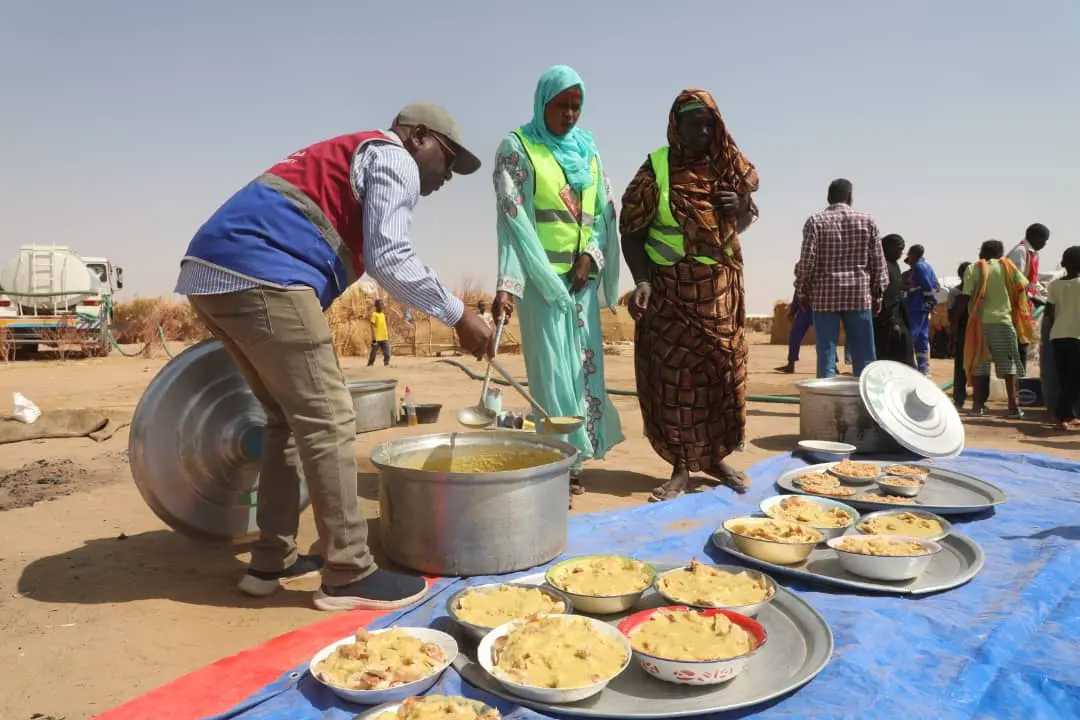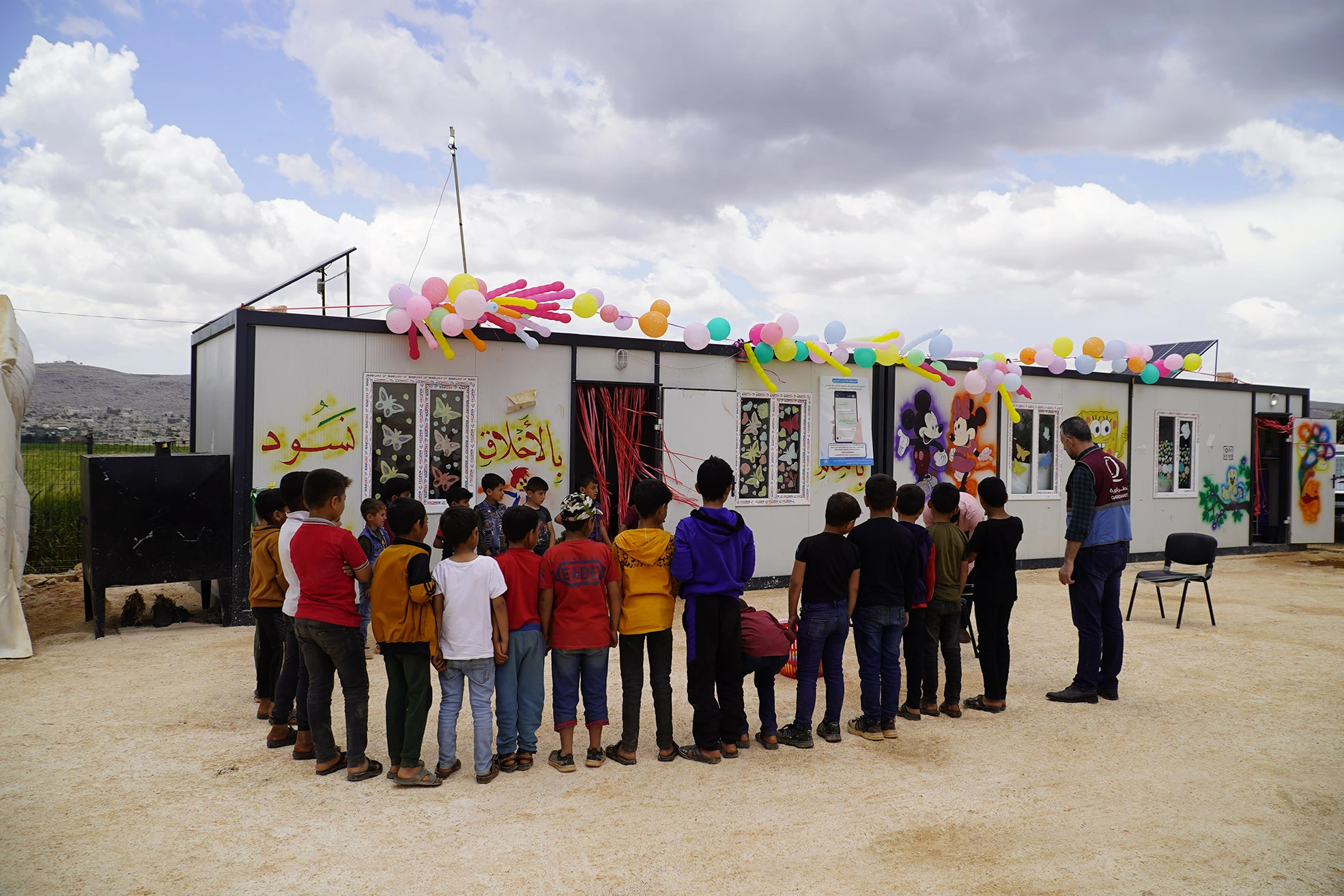Sudan is experiencing one of the most complex humanitarian emergencies in the world today. Conflict, widespread displacement, recurring flooding, and the breakdown of essential services have converged at the same time as overlapping outbreaks of cholera, dengue fever, measles, and diphtheria, pushing communities to the limits of endurance. These converging health risks are stretching health facilities thin and widening gaps in access to care, especially for families already living on the margins.
Table of contents
In October 2025, Qatar Charity launched a health-sector response in Al Jazirah and the Red Sea States to help stabilize primary healthcare services and reduce the risk of further disease spread. The project supports the broader affected population, including displaced families and host communities, by reinforcing local health facilities, providing essential medical supplies, and supporting healthcare personnel. These measures are vital at a moment when outbreaks and system disruption compound one another.
Within this broader context, it is important to note that women and girls often experience the strain of health and food system disruption more sharply, particularly due to their roles in caregiving and managing household health needs.
Why Women Carry the Heaviest Burden in Health Crises
In Sudan, as in many contexts, women are the backbone of family and community care. They are responsible for tending to children, elderly relatives, the sick, hygiene, and daily survival needs. When disease outbreaks intensify and hospitals struggle, it is women who must manage illness at home with fewer resources and greater emotional and physical strain.
At the same time:
- Access to maternal and reproductive health care becomes disrupted, increasing risks during pregnancy and childbirth.
- Caregiving responsibilities multiply when multiple family members fall ill during outbreaks.
- Displacement and instability heighten risks of domestic and sexual violence, which rise in situations of stress, overcrowding and disease outbreaks.
- Women often delay seeking medical care for themselves, prioritizing the needs of others.
The result is that health emergencies push women into longer workdays, greater health risks, and more dangerous environments, with little support.
Strengthening health systems therefore plays a direct role in reducing the invisible burden women carry.
Qatar Charity’s Health Intervention and What It Means for Women’s Daily Realities
Qatar Charity’s health response in Al Jazirah and the Red Sea States focuses on:
- Maintaining primary healthcare center operations
- Providing essential medicines and medical equipment
- Supporting doctors, nurses, and frontline health workers
- Ensuring continued access to care for displaced and host communities
When clinics remain open, stocked, and staffed, women are not forced to travel long distances, face insecurity, or delay treatment. In practical terms, strengthening community health systems means women can care for their families and themselves more safely and with dignity.
The Food Crisis and Women
Access to food is equally strained. To help families cope, Qatar Charity has been providing food baskets, essential dry staples, and ready-to-eat meals to displaced and host communities in multiple regions of Sudan including Al Jazirah, Red Sea, Blue Nile, White Nile, Gedaref, Kassala, and Darfur. These distributions include items such as grains, oil, lentils, flour, and sugar—basic supplies that allow families to sustain themselves when markets have collapsed or prices have surged.
However, food shortages do not affect everyone equally. In many households, women and girls often eat last, after ensuring that children and others have eaten. This pattern, common in crises globally, puts women and adolescent girls at higher risk of malnutrition and anemia, weakened immunity as well as pregnancy and breastfeeding complications.
In situations of extreme scarcity, families may also face harmful coping strategies, including marrying girls at very young ages to reduce the number of people to feed. This exposes girls to early and forced marriage, early pregnancy, and long-term health and protection risks.
Looking ahead
Qatar Charity’s ongoing health and food interventions provide essential support, but the crisis also underscores the need to more intentionally address the specific risks and responsibilities women shoulder during emergencies. This includes:
- Accessible maternal and reproductive healthcare
- Protection and psychosocial services for women exposed to heightened violence and stress
- Nutrition support tailored to pregnant and breastfeeding women, and adolescent girls
- Practical assistance for caregivers, whose unpaid labor sustains family survival
Responding to Sudan’s crisis is not only about treating illness or providing food, it is about strengthening the systems that acknowledge and support the central role women play in keeping households and communities alive.
These gendered risks are not isolated; they echo global concerns highlighted each year on the International Day for the Elimination of Violence against Women, underscoring how crises can intensify unseen forms of violence and vulnerability.





